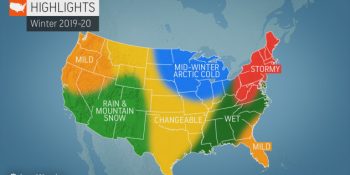Washington, D.C. – Colorado U.S. Senator Michael Bennet today called on the Department of Homeland Security (DHS) to fully address all abuses and violations at detention facilities as outlined by recent DHS Office of the Inspector General reports by November 1, 2019. In a letter to Acting DHS Secretary Kevin McAleenan, Bennet requested the agency share its plan to address concerns from the reports, as well as detailed accounting of the department’s budget for detention facilities.
The reports include violations of the 2000 National Detention Standards and Immigration and Customs Enforcement (ICE) Performance-Based National Detention Standards, including medical neglect and abuse, lack of mental healthcare, and food safety concerns.
“In light of the recent deaths at detention facilities, the lack of oversight and recourse to these violations is especially troubling. 31 immigrants, including seven children, have died in immigration custody since 2017. Yet, DHS fails to hold private contractors accountable or otherwise improve conditions of immigrant detention facilities,” wrote Bennet.
Following the release of the June report that revealed details of dire conditions endured by children and migrants at detention facilities across the country, Bennet sent a letter to McAleenan calling on DHS to provide a plan for rectifying the concerns outlined in the report.
A copy of today’s letter is available HERE and below.
Dear Secretary McAleenan:
I write to request that the Department of Homeland Security (DHS) work immediately to cure all noncompliant detention conditions that the DHS Office of the Inspector General (OIG) identified in reports over the past year. Additionally, I request a detailed accounting of taxpayer funds provided to detention facilities in the United States and a clear methodology to cure all violations of national detention standards, including plans to penalize noncompliant facilities.
I am dismayed to hear that DHS has not addressed the violations and abuses outlined in the January 29, 2019 and June 3, 2019 OIG reports. Contracts and agreements with facilities that hold Immigration and Customs Enforcement (ICE) detainees require adherence to the 2000 National Detention Standards, ICE’s 2008 Performance-Based National Detention Standards (PBNDS), or the 2011 PBNDS. A Quality Assurance Surveillance Plan (QASP) instructs ICE to recommend financial penalties for contractors that fail to meet the performance standards. According to the January 2019 OIG report, only 28 out of 106 reviewed detention facility contracts contained a QASP. Even when performance standards are blatantly unfulfilled, DHS rarely imposes penalties on facilities. Instead, facilities are excused with waivers for noncompliance. Furthermore, in the June 3, 2019 report, OIG found violations in food service that threaten detainee health, inappropriate segregation practices, the absence of recreation that endangers the general welfare of detainees, inadequate supply of clothing and toiletries, lack of visitation rights, and generally poor conditions that pose health risks.
In light of the recent deaths at detention facilities, the lack of oversight and recourse to these violations is especially troubling. 31 immigrants, including seven children, have died in immigration custody since 2017. Yet, DHS fails to hold private contractors accountable or otherwise improve conditions of immigrant detention facilities.
Since 2016, DHS has allocated $3 billion for the operation of 106 detention facilities. Given the troubling OIG reports, I again request detailed accounting of the allotment of funds to these detention facilities, including distribution of funds for medical services/supplies, food service/supplies, and other care. Please also provide a methodology to rectify all violations by November 1, 2019, a plan to penalize noncompliant facilities, and a plan to establish QASPs at each of the 106 facilities.
Sincerely,
Michael F. Bennet
SPREAD THE NEWS
COMMENT, Like, Follow & SHARE @I70Scout
CURRENT EDITION
WEATHER & TRAFFIC PUZZLES RECENT NEWS ADVERTISE WITH US








